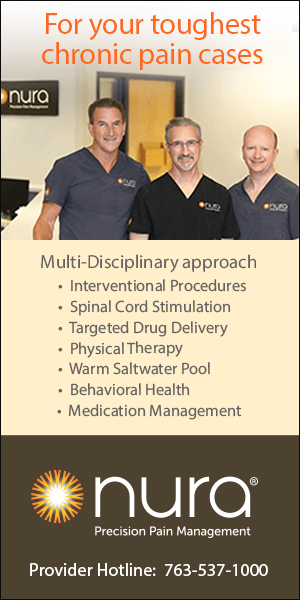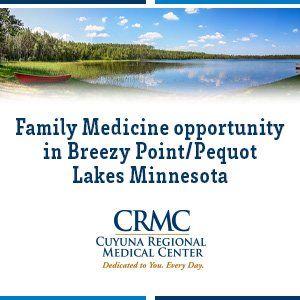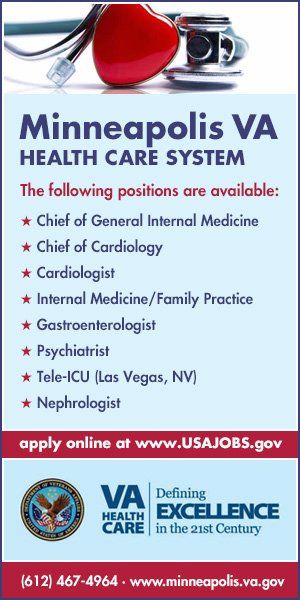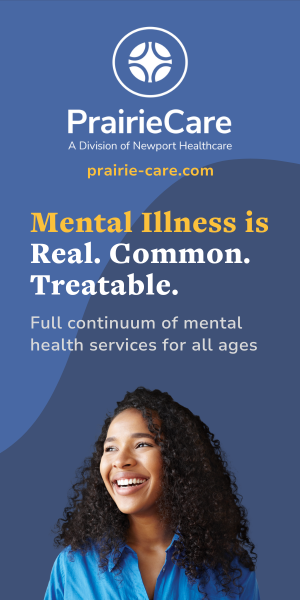f you think colorectal cancer (CRC) affects only older Americans, you’re wrong. Jenna Scott, 38, first began experiencing symptoms of early-onset CRC at age 29 during her seventh month of pregnancy. Given her otherwise clean bill of health, the symptoms were assumed to be peri/postpartum and the CRC went undiagnosed until she was 31. She entered remission after two years of treatment but has since dealt with recurrent cancers. A 20-year-old college running back, Khalil Smith, began to feel more tired than usual after practices before experiencing lightheadedness, stomach pain and unexplained weight loss. He decided to seek medical attention and blood tests raised a few red flags that led to an ER visit and CRC diagnosis. He has undergone surgery and chemotherapy and continues treatment.
cover story TWO
Colorectal Cancer
An alarming increase among younger adults
By Michael Sapienza and John Marshall, MD
Just last year, the National Institutes of Health recorded 19,550 cases and 3750 deaths in men younger than 50, making it the deadliest cancer in that male age cohort, a grim milestone researchers predict will extend to women of the same age within the next decade. The Colorectal Cancer Alliance (Alliance), the nonprofit leader in the battle to end CRC, is on a mission to stop this from happening.
So while colorectal cancer generally afflicts middle-age to older adults, cases are rising at an alarming rate among younger adults, and physicians need to be on alert. The American Cancer Society estimates colorectal cancer will be diagnosed in more than 150,000 Americans this year, and more than 50,000 will die of it this year, making it the second leading cause of cancer-related death for men and women combined. What is especially alarming is that the rate of incidence among younger generations is increasing. One in five colorectal cancer patients is between 20 and 55 and, according to the National Cancer Institute, the rate of colorectal cancer in adults younger than 50 has doubled since the 1990s, accounting for 10% of cases overall.
The rate of colorectal cancer in adults younger than 50 has doubled since the 1990s.
Don’t Dismiss Patients Due to Age
The faster symptoms are recognized, the better the chances of positive treatment outcomes. In fact, colorectal cancer has a greater than 90% survival rate when caught early, so it’s imperative that physicians recognize risk factors and symptoms, even in younger adults, and refer patients to a gastroenterologist for proper screening. Know the symptoms and suggest screening. Symptoms of young-onset CRC can be mistaken for other conditions without proper screening. Symptoms to look for include:
- changes in bowel habits such as diarrhea or constipation
- narrowing of stools
- a persistent feeling of full bowels even after bowel movements
- rectal bleeding
- abdominal discomfort such as nausea, cramping, bloating, or an inexplicable full feeling
- weakness and/or fatigue
- unexplained weight loss
While these symptoms can sometimes be associated with much more common gastrointestinal issues, physicians should not dismiss the possibility of colorectal cancer in younger populations because of age. Instead, further evaluation by a specialist should be recommended due to the rising incidence of young-onset CRC. A study by researchers at Washington University School of Medicine showed that risk compounds with the presence of multiple symptoms — patients presenting with two symptoms were at a 3.5 times greater risk of CRC diagnosis, and three or more symptoms elevated risk by 6.5 times.
Greater awareness of these issues holds the potential to save lives, as evidenced by a 2017 Alliance survey of 1535 young-onset CRC survivors, 62% of whom did not have a family history of CRC and 82% of whom had a misdiagnosis of a milder condition before ultimately being found to have CRC, which by then had progressed out of the early stages. Seventy-one percent of young-onset cases are diagnosed at Stage III or IV. Through education, advocacy and research funding, the Alliance is trying to lower these statistics.
Education and Awareness
As with many illnesses, promoting general wellness can mitigate some CRC risk. Physicians should recommend that patients increase their physical activity to the recommended level of 30 to 60 minutes of moderate exercise per day, which can reduce a patient’s risk of developing colon cancer by 30 to 40 percent. Patients should also be encouraged to abstain from smoking and limit alcohol consumption. Perhaps most important of all is the gathering of an extensive medical history. Colorectal cancer can develop silently, so there may be no symptoms at all until it has advanced to later, and more deadly, stages. Patients should be counseled to talk to their loved ones and report any family history of colorectal cancer — defined as an immediate family member or multiple family members with colorectal cancer or polyps. Patients with a family history have between a 10% and 20% chance of developing the disease (versus the one in 24 chance of someone with no history) and should be screened at age 40 or at 10 years before the date of the youngest case in their immediate family, whichever is earlier. Knowing a patient’s family history may also indicate the presence of a hereditary genetic condition further predisposing them to colorectal cancer. About 5% to 7% of all colorectal cancer patients contend with Lynch syndrome, Muir-Torre syndrome, familial adenomatous polyposis and other such hereditary contributors.
Multiple Screening Options
Health care providers and caregivers share in the responsibility of helping patients to identify and even prevent disease, and the critical necessity of screening can not be reiterated enough. Colonoscopies can actually prevent colorectal cancer when polyps are found and removed before having the opportunity to develop into cancer. Screening can also detect cancer in its earliest stages, when treatment is most successful. While every individual will eventually need to be screened for colon cancer, the guidelines for screening vary based on individual factors. People at average risk should start screening at age 45, and those at higher risk or experiencing symptoms may need to get checked earlier. Despite the lowering of the screening age from 50 to 45 in 2021, only 20% of 45 to 49-year-olds are getting screened. Physicians can help increase those numbers by recommending that all patients of average risk age 45 and older schedule a visit with a gastroenterologist for colorectal cancer screening.
Understanding screening options and being able to discuss them with patients could help alleviate their concerns and ensure a follow-up appointment with a specialist for further examination. There are many screening options, including at-home tests and colonoscopies, that help reduce the risk of colorectal cancer death. The Alliance offers a free screening recommendation based on personal risk at quiz.getscreened.org, which patients can print out and share with their physician or gastroenterologist for discussion. Screening options include:
- FIT (fecal immunochemical test) is an inexpensive at-home stool test covered by most insurance. It must be repeated yearly and requires follow-up colonoscopy in the case of a positive result.
- Stool DNA tests are another at-home option covered by most insurance that also detects microscopic amounts of blood in stool, as well as DNA biomarkers shed by cancerous tumor cells. They are more accurate than FIT, but also must be repeated yearly and require a follow-up colonoscopy in the case of a positive result.
- Colonoscopies are the gold standard of colorectal cancer screening, because they allow concurrent examination of the colon and removal of any visible polyps. A colonoscopy is minimally invasive, thorough and needs to be conducted only every few years.
Colorectal cancer has a greater than 90% survival rate when caught early.
Patient Resources and Support
Recognizing risk factors and symptoms and referring patients to a gastroenterologist for further evaluation and screening is important. Physicians are incredibly busy and often unable to assist patients beyond referrals for specialized care. Knowing, however, what patients need to hear if they are unsure of how to approach the process of screening is also critical to ensure follow through. Assistance is available to patients at any stage of the illness. Referring a patient to the Alliance at colorectalcancer.org offers resources and support that could make the difference between their following through with your recommendation or allowing an unknown ailment to progress. Some of the help the Alliance provides include:
- Critical Resources – From a toll-free helpline (877-422-2030) to financial assistance, patients and caregivers can find solace and support through free professional assistance via certified patient and family support navigators, peer support groups and more.
- Health Equity Fund – The Alliance is committed to addressing disparities in health care and providing free lifesaving screening and care resources to communities most affected by the disease.
- BlueHQ – A free online support hub offering personalized tools and resources such as a clinical trial finder, BlueHQ empowers patients and caregivers to navigate diagnosis and treatment for better outcomes.
Finding and navigating clinical trials that test new treatments for colorectal cancer patients can be an extremely daunting task. In fact, 80% of trials fail to meet their enrollment requirements even though 75% of Americans state a willingness to participate if their physician recommends it. This was the exact challenge faced by John Woerner, a colorectal cancer survivor who now sits on the Alliance board and fundraises with the Alliance to promote access to clinical trials. His oncologist recommended he seek alternative treatments after surgery and chemo failed to mitigate his metastatic cancer. The oncologist was unable to sift through the sea of ongoing trials himself, however, and asked John to take on the task of finding trials that fit his diagnosis. Luckily, John was referred by a former colleague to the Alliance, whose library of CRC-specific data helped him find a clinical trial that saved his life. These resources are available to physicians and patients alike, to help guide them to better outcomes.
Young-onset CRC Cases are Rising
While multiple theories have been put forth, a clear consensus has not yet been reached as to the rise in young-onset cases. But physician-researchers are splitting hairs, using innovative technology to study the differences in microbiome composition between young-onset colorectal cancer patients and older ones, alongside other potential causes. They are also racing against the clock to describe different colorectal cancer variants, discover new biomarkers and therapeutic targets and provide better, more direct interventions. In the meantime, physicians can still indirectly predict colorectal cancer through the tracking of risk factors and symptoms. Indeed, statistics show that more than half (55%) of all colorectal cancer cases in the U.S. are associated with lifestyle risk factors, including lack of exercise, excess weight, smoking, heavy alcohol use and eating a diet high in red or processed meat and lacking in fruits, vegetables, whole-grain fiber and calcium. Likewise, race, family history of the disease, comorbidities such as chronic inflammatory bowel diseases, ulcerative colitis or Crohn’s disease and Type 2 diabetes all contribute to increased risk of colorectal cancer. Native Americans/Indigenous people have the highest rate of colorectal cancer incidence and death, while Black Americans are 35% more likely to die from colorectal cancer, and 15% are more likely to develop it than non-Hispanic whites. Again, although none of this constitutes a complete pathology, such demographic data allow us to better understand the prevalence of the disease and promote a heightened vigilance that translates into better outcomes for patients.
You are Part of the Solution
A few of the major gaps identified so far in colorectal cancer prevention and treatment are ones physicians can already begin to close. Physicians should encourage screening beginning at age 45 or sooner if patients of any age present with symptoms or other risk factors. Doctors can help break down barriers to screening by providing education about options. In addition, offering resources where patients can learn more about the disease, screening and treatment can help achieve better outcomes. The Alliance has launched Project Cure CRC, a $100 million fund to accelerate cutting-edge research advancements. Project Cure CRC recently awarded millions of dollars in grants to researchers throughout the world who are working to improve immunotherapies and develop breakthrough treatments for metastatic colorectal cancer. To learn more about Project Cure CRC or to submit a grant application visit colorectalcancer.org/cure.
It’s important to stress that following the above advice has already resulted in lives saved. Take, for example, the story of Kathryn Sisler, 31, whose father received a diagnosis of Stage IV colorectal cancer at age 42 and succumbed to the illness six years later. A healthy young woman by all accounts, and symptom-free, she went in for a preventive colonoscopy last year because of her family history and doctors discovered a tumor almost fully obstructing her colon. She has completed treatment and there’s currently no evidence of disease, but there are many people like her whose colorectal cancer will not be found until it’s too late. Everyone deserves the chance of living a full life afforded by early colorectal cancer prevention and screening.
Michael Sapienza is the CEO of the Colorectal Cancer Alliance.
John Marshall, MD, is the chief medical consultant for the Colorectal Cancer Alliance and the director of the Ruesch Center for the Cure of Gastrointestinal Cancers at Georgetown University.
MORE STORIES IN THIS ISSUE
cover story one
AI-Powered Olfactory Sensor Technology: The electronic nose in medicine
By Chris Campbell, CEO
cover story two
Colorectal Cancer: An alarming increase among younger adults


















